Get Inspired: Tips on how to prevent a puncture
- Published
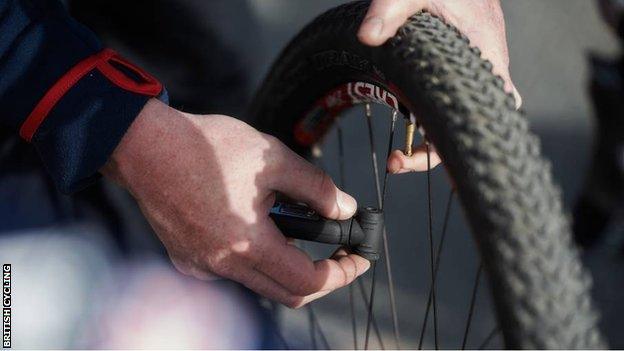
One minute you are riding happily along, but the next, with a hiss of escaping air, you are stood by the side of the road with a flat tyre to deal with.
Unfortunately punctures are part and parcel of cycling and although they are easy to fix with some basic knowledge, there are a number of simple steps you can take to prevent them from ruining your ride.
Which tyres should you choose?
Ultra lightweight tyres are great for racers looking to save seconds but, for most cyclists, more durable and puncture resistant tyres are a better choice. Look for tyres with puncture protection technology such as Kevlar reinforcement. Puncture prevention features will normally be well indicated on the sidewalls or packaging of tyres, but if in doubt, ask at your local bike shop. Check your tyres regularly for embedded thorns, glass or stones. They might not have worked their way through and can be removed before they cause a puncture.
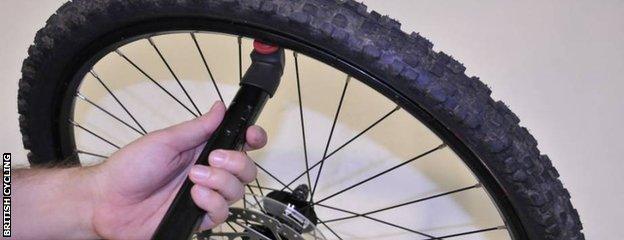
What about the tyre pressure?
If your tyres are under inflated, you are more likely to suffer snake-bite punctures, where the inner tube gets pinched against the rim. Over inflated tyres are more vulnerable to flints and glass. Tyres should be pumped up to the pressure recommended on the sidewall of the tyre. A track pump with a pressure gauge is useful to regularly check your tyres are correctly inflated.
Always look ahead and avoid the gutter.
Always look well down the road and try to anticipate puncture causing hazards to give your-self plenty of time to avoid them. Freshly cut hedges and damaged bus shelters are examples of potential puncture hot spots. Puncture causing debris tends to get washed into the gutter so don't ride there either. You have a right to be on the road so don't be intimidated and feel you have to ride right next to the kerb. For normal riding you should be roughly in line with the near side of cars.
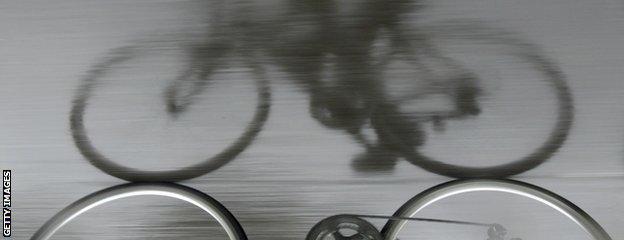
Unpredictable weather
Wet weather means more debris washed onto the roads and water can lubricate the passage of foreign bodies into your tyres. We are not saying don't ride in the wet, just pay extra attention to all of the above.
What if I do get a puncture?
Learn the technique and kit required for fixing a puncture, and other basic maintenance tasks such as, cleaning your bike and lubing your chain on British Cycling's Insight Zone. , external
Take all these precautions and hopefully you should be blessed with many puncture free miles of cycling.
What next?
1. Find out more about cycle training, kit, techniques and nutrition at British Cycling's Insight Zone. , external
2. Go to our Activity Finder to find cycling near you.
3. Share your story, external and inspire others.
- Published25 July 2019

- Published10 November 2017
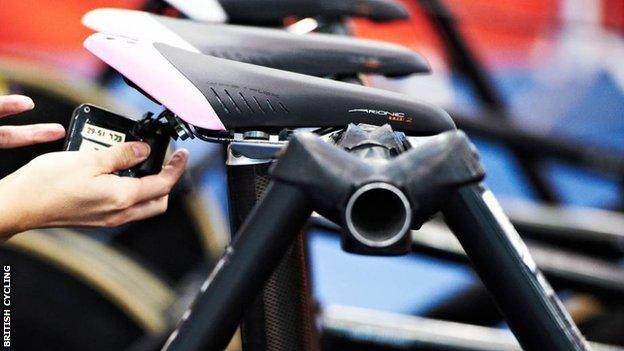
- Published5 June 2015
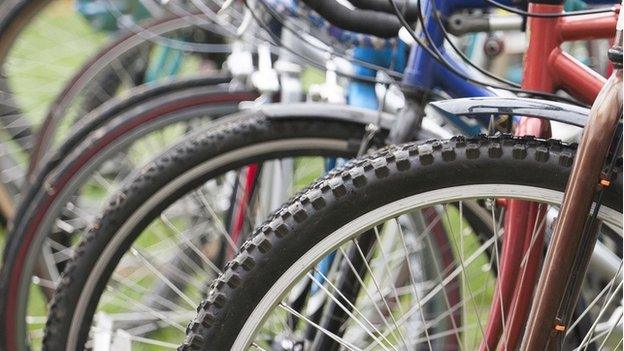
- Published19 July 2013

- Published25 August 2014
